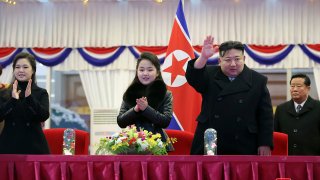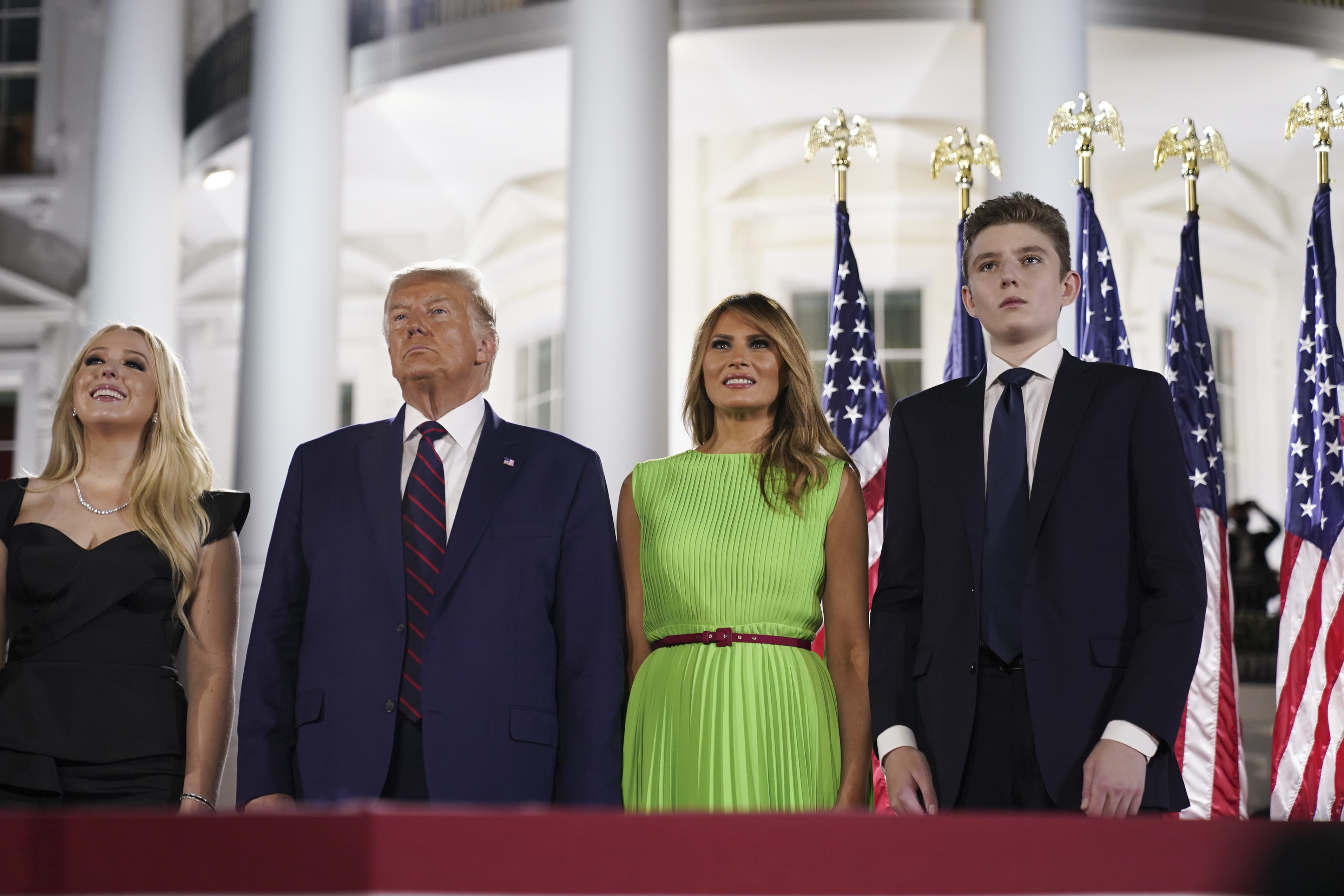
North Korean leader Kim Jong Un ordered his military to “thoroughly annihilate” the United States and South Korea if provoked, state media reported Monday, after he vowed to boost national defense to cope with what he called an unprecedented U.S.-led confrontation.
Kim is expected to ramp up weapons tests in 2024 ahead of the U.S. presidential election in November. Many experts say he likely believes his expanded nuclear arsenal would allow him to wrest U.S. concessions if former President Donald Trump is reelected.
In a five-day major ruling party meeting last week, Kim said he will launch three more military spy satellites, produce more nuclear materials and develop attack drones this year in what observers say is an attempt to increase his leverage in future diplomacy with the U.S.
In a meeting on Sunday with commanding army officers, Kim said it is urgent to sharpen “the treasured sword” to safeguard national security, an apparent reference to his country’s nuclear weapons program. He cited “the U.S. and other hostile forces’ military confrontation moves,” according to the official Korean Central News Agency.
Get Boston local news, weather forecasts, lifestyle and entertainment stories to your inbox. Sign up for NBC Boston’s newsletters.
Kim stressed that “our army should deal a deadly blow to thoroughly annihilate them by mobilizing all the toughest means and potentialities without moment’s hesitation” if they opt for military confrontation and provocations against North Korea, KCNA said.
In his New Year’s Day address Monday, South Korean President Yoon Suk Yeol said he will strengthen his military's preemptive strike, missile defense and retaliatory capabilities in response to the North Korean nuclear threat.
“The Republic of Korea is building genuine, lasting peace through strength, not a submissive peace that is dependent on the goodwill of the adversary,” Yoon said, using South Korea's official name.
U.S. & World
At the party meeting, Kim called South Korea “a hemiplegic malformation and colonial subordinate state” whose society is “tainted by Yankee culture.” He said his military must use all available means including nuclear weapons to “suppress the whole territory of South Korea” in the event of a conflict.
South Korea’s Defense Ministry warned in response that if North Korea attempts to use nuclear weapons, South Korean and U.S. forces will punish it overwhelmingly, resulting in the end of the Kim government.
Experts say small-scale military clashes between North and South Korea could happen this year along their heavily armed border. They say North Korea is also expected to test-launch intercontinental ballistic missiles capable of reaching the mainland U.S. and other major new weapons.
In 2018-19, Kim met Trump in three rounds of talks on North Korea’s expanding nuclear arsenal. The diplomacy fell apart after the U.S. rejected Kim's offer to dismantle his main nuclear complex, a limited step, in exchange for extensive reductions in U.S.-led sanctions.
Since 2022, North Korea has conducted more than 100 missile tests, prompting the U.S. and South Korea to expand their joint military drills. North Korea has also tried to strengthen its relationships with China and Russia, which blocked efforts by the U.S. and its partners in the U.N. Security Council to toughen U.N. sanctions on North Korea over its weapons tests.
KCNA said Kim and Chinese President Xi Jinping exchanged New Year's Day messages on Monday on bolstering bilateral ties. North Korea faces suspicions that it has supplied conventional arms for Russia's war in Ukraine in return for sophisticated Russian technologies to enhance the North's military programs.
Estimates of the size of North Korea’s nuclear arsenal vary, ranging from about 20-30 bombs to more than 100. Many foreign experts say North Korea still has some technological hurdles to overcome to produce functioning nuclear-armed ICBMs, though its shorter-range nuclear-capable missiles can reach South Korea and Japan.



